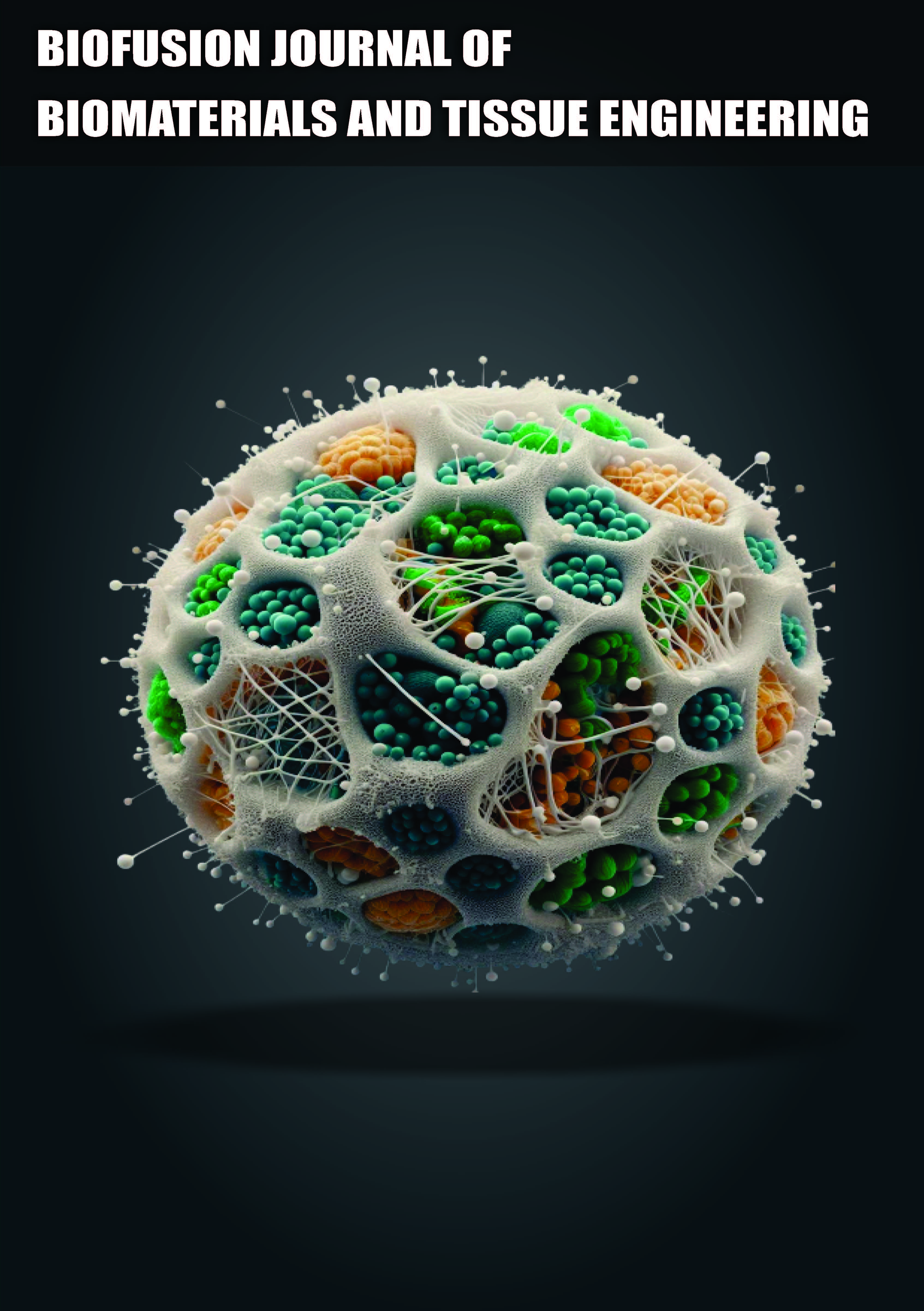BioFusion Journal of Biomaterials and Tissue Engineering

Author Guidelines
BioFusion: Journal of Biomaterials and Tissue Engineering is dedicated to advancing the science and application of biomaterials in healthcare, focusing on their role in tissue engineering and regenerative medicine. The journal aims to publish research that bridges the gap between basic scientific discovery and its clinical applications, providing a comprehensive view of biomaterials as tools for solving significant healthcare challenges. As the need for advanced materials in medicine grows, BioFusion strives to bring together researchers, clinicians, and engineers to explore innovative ways in which biomaterials can enhance therapeutic strategies and improve patient outcomes.
The journal encompasses a broad spectrum of topics related to the design, synthesis, and application of biomaterials, with a particular emphasis on their use in tissue engineering and the regeneration of damaged or diseased tissues. BioFusion is committed to publishing high-quality, original research that covers both fundamental and applied studies. The scope of the journal includes, but is not limited to, the development of biomaterials for tissue regeneration, wound healing, organ transplantation, drug delivery, implant technology, and disease prevention.
Key areas of focus for the journal include the following:
Biomaterial Design and Characterization: The journal encourages research on the development of new biomaterials with improved properties, such as biocompatibility, biodegradability, mechanical strength, and the ability to promote cellular growth. Studies in this area may involve the synthesis and characterization of natural, synthetic, and hybrid biomaterials, as well as the investigation of novel fabrication techniques such as 3D printing and electrospinning. Researchers are invited to explore the chemical, physical, and mechanical properties of these materials and how these properties can be optimized for clinical use.
Tissue Engineering and Regenerative Medicine: BioFusion seeks contributions that explore the use of biomaterials in tissue engineering applications, focusing on how these materials can support the growth and regeneration of tissues. This includes the development of scaffolds for tissue regeneration, the use of biomaterials in combination with stem cells, and the creation of organ-like structures for transplantation. Research on in vivo applications, including the use of biomaterials in wound healing, bone repair, and cartilage regeneration, is particularly welcome.
Implants and Medical Devices: Another significant area of focus for the journal is the development of biomaterials for use in medical implants and devices. This includes the design of materials for orthopedic, cardiovascular, dental, and neural implants, as well as innovations in minimally invasive surgery. Studies that examine the biocompatibility, durability, and performance of these materials in the body are vital to the journal's mission. The journal also welcomes research on the integration of these materials with electronic and digital technologies, such as smart implants and wearable medical devices.
Drug Delivery Systems: Research on biomaterials used in controlled drug delivery systems is an important part of the journal's scope. BioFusion welcomes studies that focus on the development of advanced materials for the targeted and sustained release of therapeutic agents. This includes research on nanocarriers, microparticles, hydrogels, and other innovative delivery systems designed to improve drug efficacy, reduce side effects, and enhance patient compliance.
Regulatory and Ethical Considerations in Biomaterials: The journal also recognizes the importance of regulatory frameworks and ethical considerations in the development and application of biomaterials. Contributions that discuss the challenges of translating laboratory research into clinical practice, the regulatory approval process for biomaterials, and the ethical implications of using certain materials in human healthcare are highly encouraged.
Nanomaterials and Advanced Biomaterials: The use of nanomaterials in biomaterials science is rapidly expanding, and BioFusion aims to capture this growing area of research. Studies that investigate nanocomposites, nanofibers, and other nanoscale materials in biomaterial applications are welcomed. The journal also covers the exploration of advanced materials, including smart materials that respond to environmental stimuli such as pH, temperature, or electrical signals.
Biomaterials for Personalized Medicine: Personalized medicine is becoming an increasingly important aspect of healthcare, and biomaterials play a critical role in this shift. Research that focuses on the customization of biomaterials for individual patients based on genetic or environmental factors is an area of particular interest for BioFusion. This includes the use of patient-specific biomaterials for implants and regenerative therapies, as well as advancements in diagnostic tools and techniques.
Biocompatibility and Safety Studies: Ensuring the safety and biocompatibility of biomaterials is critical for their successful integration into clinical practice. BioFusion invites research on the biological interactions of biomaterials with tissues, immune responses, toxicity assessments, and long-term in vivo studies that evaluate the performance and safety of these materials in human applications.
By publishing high-quality, rigorous research across these areas, BioFusion seeks to advance the field of biomaterials and tissue engineering, providing a comprehensive resource for those working to address some of the most pressing challenges in healthcare. The journal’s global reach and open-access model ensure that cutting-edge research is disseminated widely, accelerating progress in this vital field.

